New Zealand’s Prime Minister, Jacinda Ardern, was born in 1980 and claims because of the poverty around her, by the age of 17, she was drawn to the Labour party.
One wonders which Labour party that was? The only Labour government she would have known was the one led by David Lange which stood out as a beacon for free markets and smaller government the world over.
Perhaps she confused Sir Robert Muldoon’s National party for Labour? He was prime minister when Ms Ardern was born and was a big government demagogue. His ‘New Zealand – The Way You Want It’ hubris, along with his statist ‘Think Big’ heavy industry programmes and compulsory superannuation scheme, left the country crippled with debt, a balance of payments crisis, high interest rates and rampant inflation.
Muldoon’s passion for control no doubt appealed to the young Ms Ardern. But the Labour party of her youth was the antithesis of the government she leads today. Indeed, she has been described as ‘Rob Muldoon with slogans and kindness’.
The Labour party she says she was drawn to was about deregulation. Prime minister David Lange and his finance minister Roger Douglas, corporatised several government departments and sold privatised state assets. They used monetarist measures to control inflation, floated the dollar and allowed markets to set interest rates. They slashed subsidies and trade tariffs and turned a moribund economy into one that was internationally competitive. New Zealand shifted from being one of the world’s most regulated economies to one of the freest.
Did she once support that?
Since her election, Jacinda Ardern appears intent on squandering what’s left of Lange’s legacy. She is actively changing the nation’s ideological direction and international alignments. Her new employment laws empower trade unions and place centralised wage bargaining back at the heart of industrial relations. Her climate change policies are economically and socially reckless
She is also getting closer to Beijing. She refused to sign a Five Eyes condemnation of China for human rights abuses and distanced herself from Australia and its Five Eyes partners in speaking out against a staged World Health Organisation investigation into the origins of Covid-19. She also joined with China in hectoring Canberra on climate change, crowing ‘Australia has to answer to the Pacific’, conveniently ignoring that over the past thirty years, New Zealand’s per capita emissions have outstripped Australia’s fivefold.
Still, Comrade Ardern, the former president of the International Union of Socialist Youth, is lauded by global elites as a ‘new kind of leader’. The Atlantic referred to her as ‘the most effective leader on the planet’. The New York Times described her leadership during the pandemic as a ‘master class’.
Some 568,000 New Zealanders who call Australia home would disagree. They have decided the warm glow of a young, compassionate, socialist prime minister, pales when compared to the tangible benefits of a 36 per cent higher per capita GDP.
Like so many authoritarian leaders, Ardern is now confronting the enormous social and economic damage her Zero-Covid strategy has inflicted. She too has capitulated to street protesters demanding their lost freedoms be returned and finally admits ‘that long periods of heavy restrictions have not got us to zero cases’.
As the country opens up to spiking infections, struggling businesses are facing new government imposts and red tape. For a country already suffering poor productivity, low wages, a widening wealth gap, unaffordable housing, skills shortages, shallow domestic capital markets, a lack of diversification and under-investment in infrastructure, the latest policies seem inept.
If these structural issues are not enough, Ardern’s commitment to Zero-50 emissions could be the last straw. A recent Ministry for the Environment paper finds that converting sheep and beef farmland to pine forests is significantly cheaper than nearly any other option. Good luck with that.
Meanwhile, Wellington continues to pretend its relationship with Beijing is simply pragmatic. Perhaps once upon a time? But, today, China’s colonisation of New Zealand is accelerating. Indeed, Beijing sees New Zealand as a useful Trojan Horse in its fight with Canberra. Moreover it is a valuable platform from which to penetrate Five Eyes intelligence. When 32 per cent of NZ trade goes to China and, with an economy running close to the edge, Beijing is ideally placed to pursue its ambitions.
And it knows it.
In February, it upgraded its long-standing trade agreement with Wellington. The new pact will stimulate further Chinese investment with caps being lifted tenfold. That will add to Beijing’s growing influence and draw New Zealand even further into China’s orbit. In a veiled reference to Canberra, China’s Global Times observed, ‘Compared with certain Western countries, New Zealand has a positive attitude toward Chinese investment.’
Belatedly, Australia has woken up to Beijing’s Pacific intentions. China’s debt-trap diplomacy is paying off, allowing it to secure a naval base in the Solomon Islands and another military facility rumoured for Vanuatu. Beijing also announced it will build a new $200 million ‘fishery complex’ on Papua New Guinea’s Daru Island, less than 250 kilometres from Australia’s mainland.
Neutralising New Zealand would be a strategic coup for Beijing. Despite its Anzac traditions and close cultural ties, Wellington’s defence links with Australia have been drifting apart for decades. New Zealand now views the once pivotal Anzus Agreement as informal. New Zealand is not included in Australia’s latest trilateral Aukus Agreement, nor in the Quadrilateral between Australia, India, Japan and the United States. The Closer Defence Relations, established in 1991 to mirror Closer Economic Relations, lacks the military obligations set out in the Anzus Treaty.
These realities should cause alarm bells to ring in Canberra and Washington. Wellington’s never-ending welcome mat and, its recent actions and words, demonstrate that, despite protestations to the contrary, Ardern’s New Zealand increasingly favours China over Australia and America. Which means for ordinary Kiwis, to paraphrase Trump advisor General H.R. McMaster, she believes servitude is better for them than sovereignty.
Got something to add? Join the discussion and comment below.
Get 10 issues for just $10
Subscribe to The Spectator Australia today for the next 10 magazine issues, plus full online access, for just $10.
You might disagree with half of it, but you’ll enjoy reading all of it. Try your first month for free, then just $2 a week for the remainder of your first year.

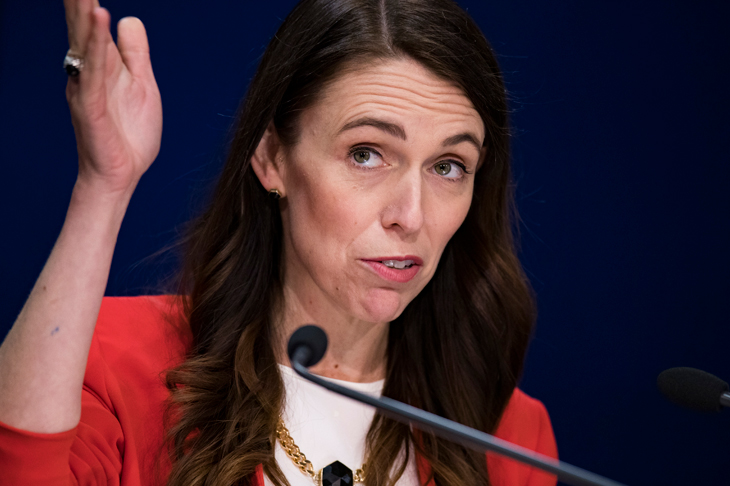
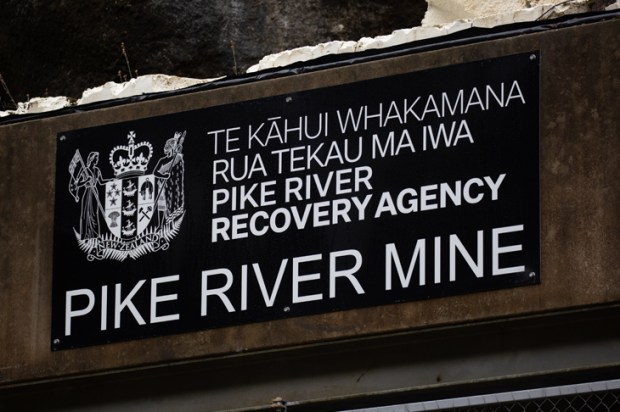
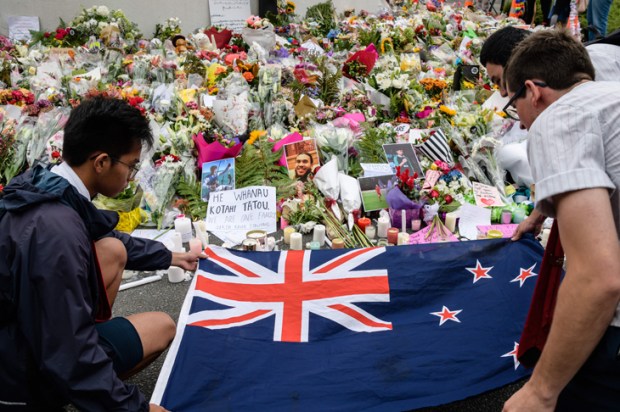
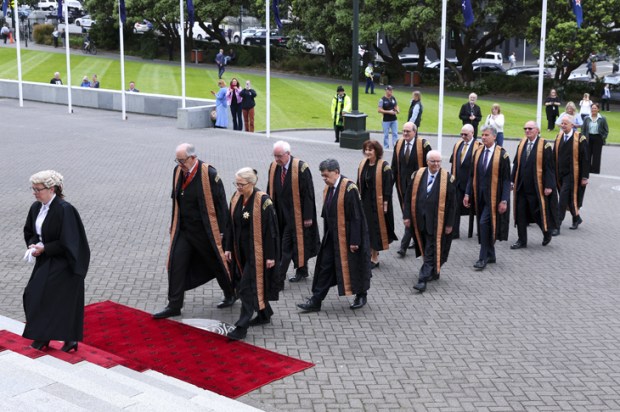
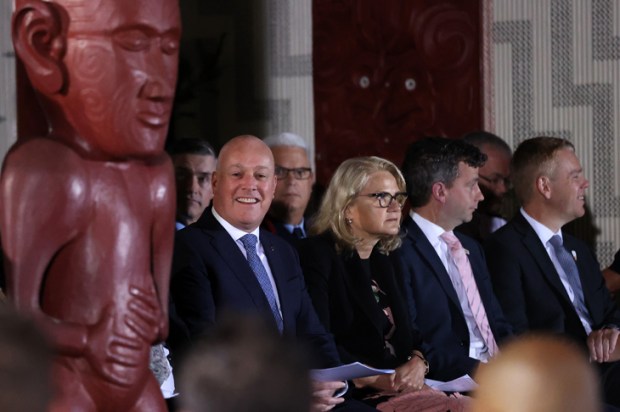

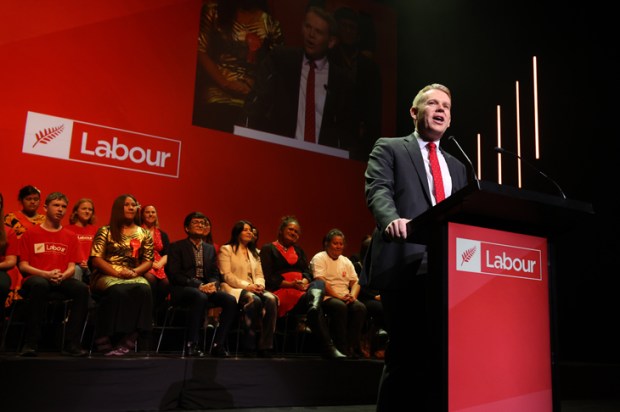






Comments
Don't miss out
Join the conversation with other Spectator Australia readers. Subscribe to leave a comment.
SUBSCRIBEAlready a subscriber? Log in